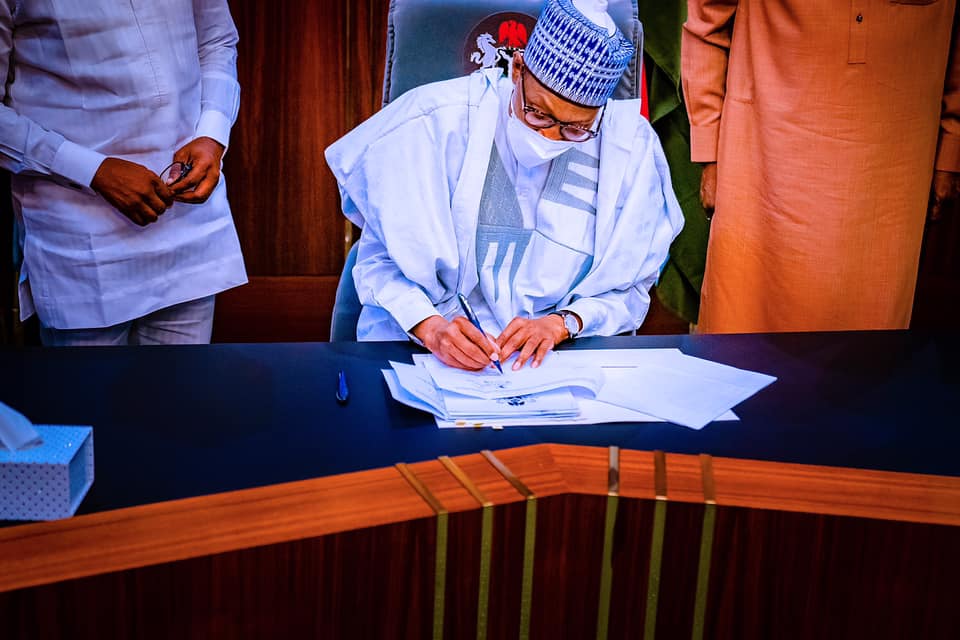Few days ago, President Muhammadu Buhari transmitted a 2022 supplementary budget of N819.5 billion to the National Assembly. In separate letters to the Senate President, Senator Ahmad Lawan and the Speaker of the House of Representatives, Rt. Hon. Femi Gbajabiamila, the President sought the lawmakers’ approval of the budget. He said all of the additional budget of N819,536,937,813 for 2022 are capital expenditure and it became necessary due to the devastation caused by floods on farmlands and road infrastructure. In the year 2022, he explained, Nigeria witnessed the worst flood incidents in recent history, which has caused massive destruction of farmlands with risks of food insecurity. Buhari said the disaster affected several roads and bridge infrastructure across the 36 states of the federation, which are critical for the movement of goods and services.
“The water sector was equally affected by the flood and there is the need to complete some critical ongoing projects that have achieved about 85 per cent completion. The nine critical projects proposed in the sector cuts across water supply, dam and irrigation projects nationwide. The supplementary budget will be financed through additional domestic borrowings. This will raise the budget deficit for 2022 to N8.17 trillion and deficit to GDP ratio to N4.43 per cent”, the President said. It would be recalled that the additional budget comes barely 24 hours before the passage of the 2023 Appropriation bill. However, the President’s move is certainly not without reactions for the decision, which is coming few days to the end of 2022, is to be financed from domestic borrowing sources, to the N20.5 trillion initially proposed by the President to bring the total budget to N21.32 trillion.
A statement by the Lagos Chamber of Commerce and Industry (LCCI), indicated that the unprecedented damage inflicted on some of our infrastructure as a result of flooding in most parts of the country required urgent financing action by the government. The Director-General of LCCI, Dr. Chinyere Almona observed that “We expect the supplementary budget to be used totally on repairing damaged infrastructure, but also very important is that we expect the government to invest more in building infrastructure to prevent future disasters. A deeper look at the figures showed that the supplementary budget, if approved, will raise the budget deficit for 2022 from N10.78 trillion to N11.6 trillion and about 4.43% deficit to GDP ratio. The most critical issue, though, is not about the level of spending but the cost of borrowing. The implications of this massive borrowing by the government to the economy are enormous, including crowding out credit to the private sector, increasing the cost of debt servicing, and making the economy more vulnerable to unforeseeable shocks in an election year.
“At the end of the first half of 2022, Total Debt Service stood at ₦2.597 trillion, higher than the prorated sum of ₦1.978 trillion by ₦619.81 billion (31.33 percent). Also, the interest payments on Ways and Means collected from the Central Bank of Nigeria amounted to ₦714.74 billion. According to data from the Budget Office of the Federation, the sum of ₦1.333 trillion was used for domestic debt servicing, a difference of ₦52.34 billion (4.09 percent) from the prorated half-year projection. In contrast, ₦549.70 billion was spent on external debt servicing during the period under review. And with the plan of the Federal Government to restructure its Ways and Means loans of N23 trillion, Nigeria’s total debt would effectively be at N67.7 trillion by the end of 2022. We must watch the cost implications of our borrowing and spending. On the revenue side, the economy has not performed to expectations. At the end of the first half of 2022, the Gross Oil Revenue amounted to ₦2.17 trillion against ₦4.7 trillion prorated budget projection for the period. This is lower by ₦2.5 trillion (about 53.63 percent) compared with the 2022 half-year budget estimate.
“The government must arrest the rising costs and dwindling revenue profile of the economy to boost growth and resolve the many economic ills in the country at this time. In the face of current realities, we urge the government at all levels to be more proactive rather than reactive to nature-induced casualties, climate change impacts, and damages caused by human activities. In August this year, the Nigerian Meteorological Agency (NiMet) warned of possible flooding in about 20 states, but unfortunately, both citizens and the governments paid no significant attention to it. This brings to question what support is given through the utilisation of ecological funds shared among the three tiers of government to finance projects aimed at both adaptation and mitigation activities against natural disasters. We must also ask the states and local governments to account for the utilisation of ecological funds allocated to them. There is an urgent need for a better management and evaluation model to utilise the ecological funds”, Dr. Almona further added.

